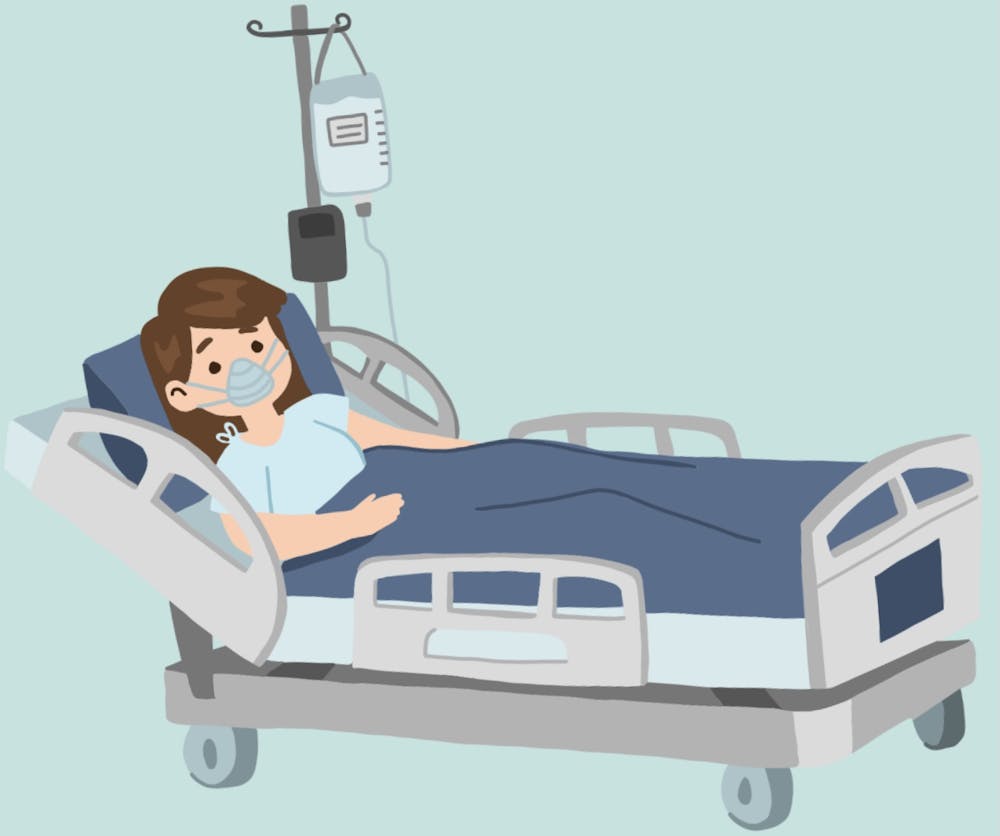Lea en español
For decades, the general public has only associated smoking as a risk factor for lung cancer, but health experts now know that there are many more factors that can contribute to the development of lung diseases. However, because of the public’s continued false perception, non-smokers with lung cancer face increasing stigma.
Katie Brown — vice president of LUNGevity, the largest national lung cancer-focused nonprofit organization — notes that environmental factors such as radon, pollution, exposure to carcinogens and even genetics play a part in the development of lung diseases, many which are out of an individual's control.
Catherine Bonham, assistant professor in pulmonary and critical care at the University hospital, agrees with Brown on the complexity of issues that can impact lung cancer’s development. For example, Bonham mentioned that some individuals are inherently at a higher risk of developing lung conditions because of their jobs.
Bonham also mentions that people working in industries with dust or those who use non-clean fuel to cook food, most often women, are exposed to above average levels of dust particles and oils.
Additionally, the socioeconomic status of families contributes to the disproportionate impact of lung diseases across the U.S. population. For example, those with low incomes cannot always afford the luxury of hiring cleaners or have the time to clean their houses themselves, forcing them to make do with mold, dust, animals and bugs, which increases the chances of asthma and lung disease, Benton said.
Those who do not have many choices in their selection of homes and are forced to live near the highways are also subject to “more pollution” and “less parks and open spaces to help them maintain a healthy lifestyle,” said Bonham.
To Bonham, these instances exemplify the fact that a significant proportion of lung diseases are caused by environmental factors and are “no fault of the individual.”
However, despite the multitude of causes that can influence the development of lung cancer, many still hold stigmas against those who develop such conditions.
Lee Johnson, assistant professor of Nursing, said that the past public health programs aimed at smoking cessation often painted smoking in a negative light. Although these programs had the intention of raising health awareness, it also led to a stigma associated with smoking.
“Stigmas associated with lung cancer can cause a patient to feel shame, guilt and isolation [and] may also cause a patient not to seek the resources, services and support that they deserve,” Brown said in an email sent to The Cavalier Daily.
Bonham said that individuals with lung diseases will often feel shame while wearing an oxygen tank and face loneliness in their struggles, especially if they encounter people who “misunderstand their disease and tell them that they ‘deserve’ their condition because of their poor lifestyle choices.”
Because these issues are not commonly discussed, they are not generally known to the public, despite their importance.
“People are less aware of these diseases and less money gets contributed to treating these conditions,” Bonham said.
Bonham also said that another reason why there is a stigma surrounding lung disease for non-smokers is because families typically do not discuss these issues, which can lead these patients to feel less supported.
In fact, the mental aspects of lung diseases may be just as detrimental as the physical aspects.
“Individuals who reported higher levels of stigma also reported higher levels of symptoms interfering with their life, and this would include psychological symptoms,” Johnson said in an email to The Cavalier Daily.
Her results also suggested that “those who felt more stigmatized might also have a lower quality of life,” she wrote.
If there is somebody in your life who struggles with lung disease, Bonham suggests showing them kindness and reaching out to them to initiate a relationship so that they do not feel a sense of isolation.
“[You] are never alone,” Bonham wants all lung cancer patients to know, “There are many people who are willing to help,” such as those at the American Lung Association.
In order to make such individuals feel comfortable, Bonham encourages patients to have open conversations about the issue with their circle of friends and family.
“It may be hard to get the conversation going [because] people may feel awkward, [but] once the conversation is going, it can be a very positive thing to talk about,” Bonham said.







